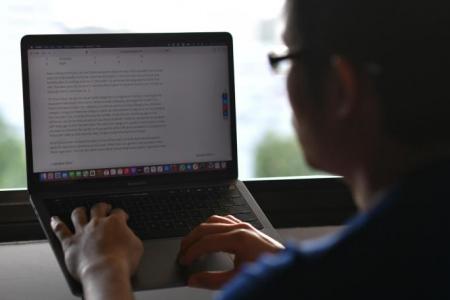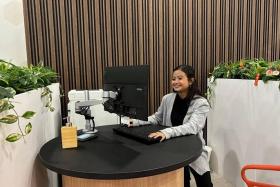Parliament watchdog raises concerns over supplies, risks of public servants on long-term WFH
Parliament's public sector accounts watchdog has raised the possibility of the Government shifting from a "just-in-time" operating model to a "just-in-case" one, in view of the impact of disruptions to the global supply chain arising from the Covid-19 pandemic.
The impact of the public sector permanently adopting hybrid working arrangements was also a point of concern for the Public Accounts Committee (PAC), which comprises eight MPs.
These observations were released in a report on Wednesday (Jan 26), along with responses from the relevant government agencies.
Other broad issues discussed by the PAC, along with their impact on public-sector spending, financial governance and control, included the need to re-evaluate baseline spending as Singapore moves to become a "Covid-resilient" nation, as well as the need for a proper governance framework for the Singapore Green Plan, a national movement for sustainable development.
The committee said it was concerned about how disruptions to the global supply chain would impact costs for the Government.
"Apart from supply chain concerns, other new inflationary risks and vulnerabilities would affect government spending and may require adjustments to financial governance processes and internal controls," the PAC added.
In response, the Ministry of Finance (MOF) pointed to four strategies it has in place: building a strong buffer of financial resources, diversifying sources of supplies, considering the establishment of commercially viable local production sources for certain supplies, and stockpiling essential supplies.
When it comes to essential goods and industrial supplies, the Government would likely play a more direct role to ensure food supply resilience as the market would not naturally provide for an adequate level of resilience, said MOF.
On the other hand, industrial supply chain disruptions are commercial risks which should be mainly addressed by companies, with limited government involvement, if at all.
Another area the PAC was concerned about was the attendant risks and impact on governance, controls, oversight and accountability with greater adoption of work-from-home and hybrid arrangements in the public sector.
To this, the Public Service Division (PSD) said that even as it shifts towards hybrid work settings where telecommuting becomes a permanent feature, it has put in place measures to ensure citizens and businesses can continue to access services seamlessly, and service standards to ensure feedback is reviewed in a timely fashion.
PSD will develop a set of principles stating that hybrid work is not an entitlement. Job requirements take priority and hybrid work provisions can be varied depending on the workforce's readiness - for instance, new hires may not be able to work from home as much at the beginning.
PSD said public service officers may also be reskilled to mitigate any disruption to their jobs due to hybrid work arrangements. Personal assistants could take on additional roles in coordination, or knowledge or event management, while counter staff could manage live chats or attend to citizens via video-conferencing.
PSD also has a strategy to look after employee well-being, be it overwork from the blurring of lines between the home and the office, or feelings of social isolation. This includes a central counselling hotline, regular webinars and a community of appointed wellness ambassadors.
To address telecommuting-related cyber-security risks, public officers have also been informed of best practices and measures to secure their home network, for example. They also need to go through annual cyber-security awareness training, while all agencies are required to conduct audits on their information and communications technology systems.
Get The New Paper on your phone with the free TNP app. Download from the Apple App Store or Google Play Store now



